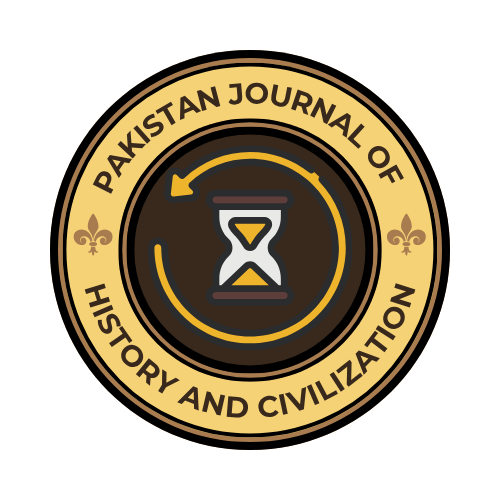
Peer Review Policy
Pakistan Journal of History and Civilization is committed to maintaining the highest standards of scholarly rigor and academic integrity through a transparent and thorough peer review process. The journal employs a double-blind peer review system, where both the reviewers and authors remain anonymous to each other, minimizing bias and ensuring objective evaluation of manuscripts.
Submission and Initial Screening
Upon submission, all manuscripts undergo an initial editorial assessment to verify their relevance to the journal’s scope, originality, and adherence to submission guidelines. Manuscripts that do not meet these basic criteria may be rejected without external review to streamline the process and maintain quality.
Double-Blind Review Process
Manuscripts passing the initial screening are sent to at least two independent experts with relevant knowledge and experience in the subject matter. These reviewers evaluate the manuscript’s scientific merit, methodology, accuracy, originality, significance, and clarity of presentation.
Reviewers are asked to provide detailed, constructive feedback aimed at improving the manuscript, including suggestions for enhancement, identification of errors, and assessment of the validity of conclusions. The double-blind nature ensures that reviewer comments are unbiased and based solely on the content and quality of the work.
Reviewer Selection and Responsibilities
Reviewers are carefully selected based on their expertise and academic qualifications. They must disclose any potential conflicts of interest that could affect their impartiality. Reviewers are expected to maintain confidentiality of the manuscripts and to submit their evaluations within the agreed timeframe.
Editorial Decision
Based on the reviewers’ recommendations, the editorial board considers the reports and makes a final decision, which may include acceptance, minor or major revision, or rejection. The editor communicates the decision and reviewers’ comments to the authors in a constructive manner to facilitate improvement and scholarly dialogue.
Revision and Resubmission
Authors are encouraged to address reviewer comments comprehensively when revising their manuscripts. Revised submissions undergo further review as necessary to ensure that concerns have been adequately addressed and the quality standards upheld.
Timeline and Transparency
The journal strives to complete the peer review process efficiently, typically within 6-8 weeks, balancing thorough evaluation with timely publication. While the process is double-blind, authors are welcome to raise queries or appeal decisions through formal channels if needed.
Ethical Standards
Pakistan Journal of History and Civilization adheres to ethical guidelines in publishing and reviewing, including those outlined by the Committee on Publication Ethics (COPE). The journal prohibits plagiarism, data fabrication, and other unethical practices, taking appropriate actions when violations are detected.

